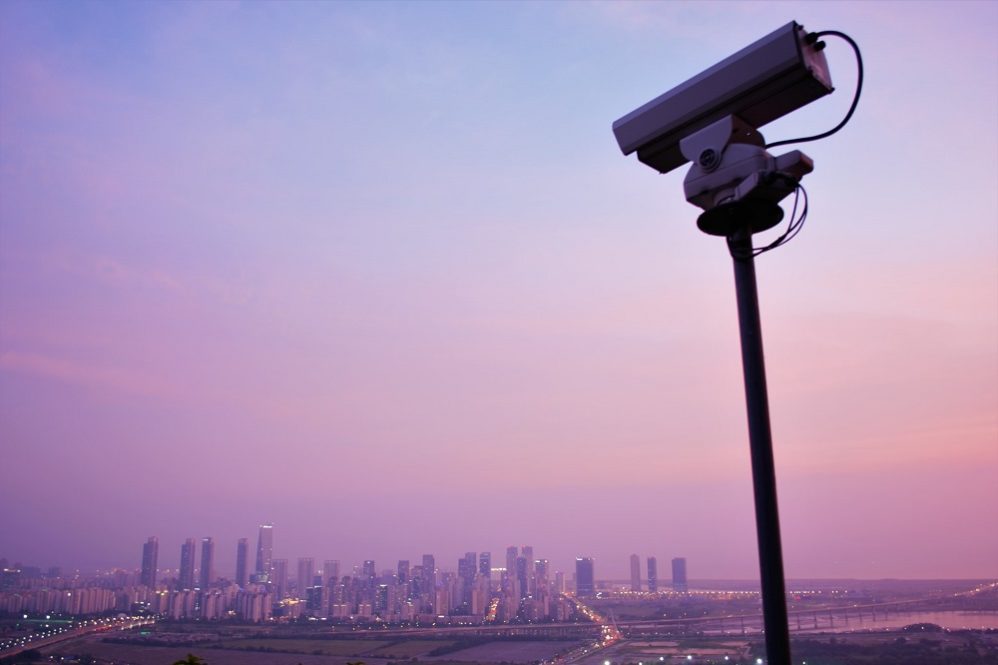
Posted on 04/27/2020 7:19:32 AM PDT by Kaslin

Including the line ‘China was largely right and the United States was largely wrong’ discredits any piece of writing that discusses civil liberties and the rule of law.
My former law professor Jack Goldsmith, now at Harvard Law School, and Andrew Keane Woods of the University of Arizona Law School, have a remarkable article in The Atlantic that defends technology companies’ surveillance and speech controls regarding coronavirus information. “Significant monitoring and speech control are inevitable components of a mature and flourishing internet,” they write, “and governments must play a large role in these practices to ensure that the internet is compatible with a society’s norms and values.”
I’m a constitutional lawyer, not a tech-regulation expert, so I’ll defer on the relevant policy issues to Goldsmith, who co-authored the insightful “Who Controls the Internet?” back in 2006, and Woods, a Cambridge Ph.D. who focuses on this area in his teaching and writing. But what I found stunning about their article wasn’t policy prescriptions—of which there are few—but the blaming of American constitutional culture for preventing the sort of government interventions that might help us during the current pandemic.
Here’s the nut graf: “The First and Fourth Amendments as currently interpreted, and the American aversion to excessive government-private-sector collaboration, have stood as barriers to greater government involvement. Americans’ understanding of these laws, and the cultural norms they spawned, will be tested as the social costs of a relatively open internet multiply.”
In other words, people would have better coronavirus-related news, and public-health officials would have better contact-tracing programs, if it weren’t for our Constitution’s pesky protections for speech and privacy. “In the great debate of the past two decades about freedom versus control of the network, China was largely right and the United States was largely wrong.”
Now, even if it’s true that the U.S. government could more effectively target criminal activity, let alone “fake news”—whichever ideological side gets to define it—if it could elide constitutional rights, is that something we’re seriously willing to consider doing? Including the line “China was largely right and the United States was largely wrong” discredits any discussion of civil liberties and the rule of law.
And that’s before we even weigh the trade-offs. My Cato colleagues who work on technology policy say that the digital contact-tracing programs being proposed—those for which Goldsmith and Woods want a more flexible constitutional structure—wouldn’t even achieve the goals of traditional contact-tracing, which seeks to identify and isolate disease carriers.
If tens of millions of Americans download a digital-surveillance app, millions of them will be told they’ve been in “contact” with someone who tested positive for COVID-19. Won’t that prompt a largely useless rush to medical centers that will defeat all this “flattening the curve” for which we’ve sacrificed?
Moreover, as the Electronic Freedom Foundation detailed in a recent explainer about proximity apps:
It is also doubtful that a proximity app could substantially help conduct COVID-19 contact tracing during a time like the present, when community transmission is so high that much of the general population is sheltering in place, and when there is not sufficient testing to track the virus. When there are so many undiagnosed infectious people in the population, a large portion of whom are asymptomatic, a proximity app will be unable to warn of most infection risks. Moreover, without rapid and widely available testing, even someone with symptoms cannot confirm to begin the notification process. And everyone is already being asked to avoid proximity to people outside their household.
So now you’ve given up certain freedoms to enable the “private-public collaboration” that Goldsmith and Woods laud, but haven’t gained much of anything.
Alas, that’s all-too-often the story when those in power scare us into giving them certain “temporary” powers. Or when big business invites the government to regulate an industry, as Facebook’s Mark Zuckerberg has done.
When government and business collude, the average citizen loses out. Recall the parable about two wolves and a sheep arguing over what’s for dinner. That is why we have those pesky constitutional rights to begin with, and why the private-sector innovators who have truly helped out during this pandemic haven’t been in bed with government programs or “advisers.”
In any event, “China was right” is never the answer to any legal question, particularly anything even tangentially related to COVID-19.
How about internet control of any dissenting opinions. Silicon Valley has adopted the Chicom model. Fortunately, in America, you don’t have to kill someone to totally silence them, ask Milo.
Get up to speed...
https://www.edge.org/responses/what-should-we-be-worried-about
Ours (silicon valley) and theirs including 5-star general in the softkill army, Trey Billygoat Gates.
[...] they write, “and governments must play a large role in these practices to ensure that the internet is compatible with a society’s norms and values.”
My response: A simple "Why?!"
Since when is it the government's duty / does the government have the right to restrict 1A rights to ensure that Free Speech is compatible with a society's "norms and values?"
And who gets to define those nebulous "norms and values?" In what legal document are those "norms and values" enshrined? The New York Times?!
Regards,
Until the likes of the Clinton Administration, the United States thought it was “anathema”, to emulate anything constructed from a Communist mind!!
Those who are supporting everything China in all of this are treasonous.
Regardless of probability these guys know no more about the Constitution than that case law version taught at law school, they are super techies. Techies can be laser focused, but narrow. Scary this.
Disclaimer: Opinions posted on Free Republic are those of the individual posters and do not necessarily represent the opinion of Free Republic or its management. All materials posted herein are protected by copyright law and the exemption for fair use of copyrighted works.